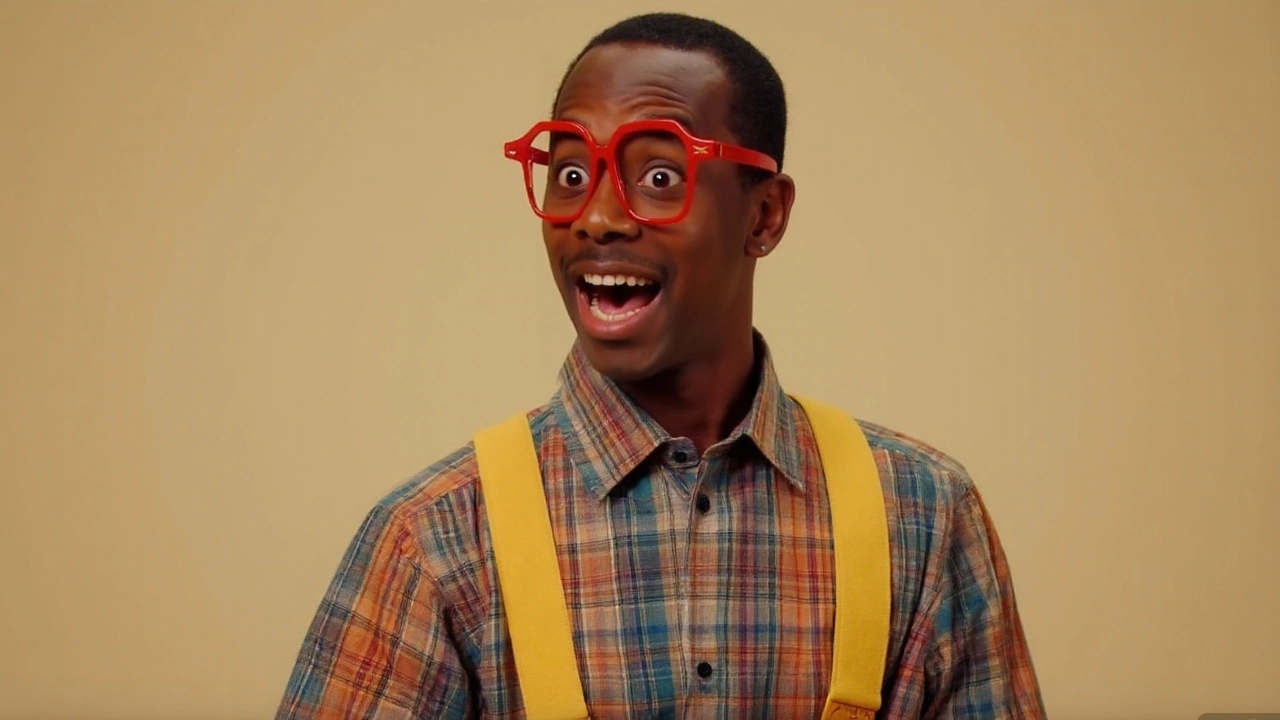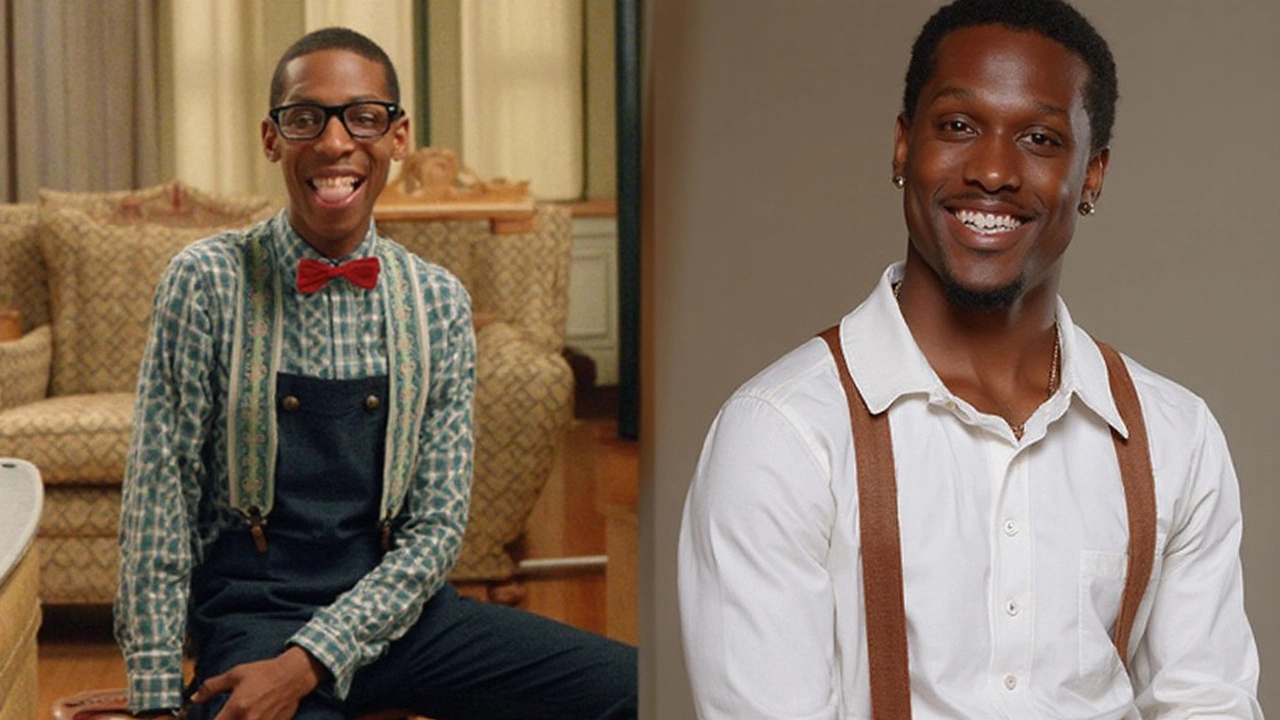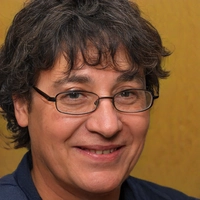
Why Jaleel White is saying no
Jaleel White isn’t teasing a comeback. He’s shutting the door. The actor behind Steve Urkel says a new Family Matters isn’t in the cards, and he’s already turned down offers. On Andy Cohen Live in November 2024, White made it clear: if a project smells like a quick payout, he’s out. “If it’s just a cash grab… I’m not interested,” he said, adding that he’d only touch the franchise if it “advances the legacy” and boosts young actors’ careers.
He also doesn’t think the show’s original formula would work now. Family Matters ran for nine seasons from 1989 to 1998, living inside ABC’s TGIF block, a peak-era factory for warm, clean family sitcoms. White’s view is blunt: that tone doesn’t translate to 2020s TV. People watch differently, expectations are sharper, and fan nostalgia wears off fast. As he put it in spirit, many folks would tune in out of curiosity and social-media hype—and then bail. You’d watch for one episode.
It’s not that reboots never work. Fuller House pulled off a long, feel-good run by leaning hard into a safe, Hallmark-style comfort zone. White respects that but says Family Matters can’t copy it. The Winslows weren’t just hugs and life lessons. The show swung between sincere family stories and high-concept comedy—Urkelbots, wild inventions, and transformation hijinks. That cocktail is tough to remake without it feeling dated or too campy.
There’s also the weight of a character who swallowed the cultural spotlight. Steve Urkel started as a one-off and became the center of gravity. Without White, there’s no realistic way forward. With him, the risk is different: does a show built around a legendary character still land emotionally, or does it play like a theme-park version of itself? White seems convinced that the risk-reward math isn’t there.
White’s stance has another layer: respect for the audience. He sounds wary of false promises—of staging a warm reunion just to cash in on the brand. In his framing, the only version worth making would be one that gives new performers a platform and pushes the legacy somewhere real. If that can’t be done, better to leave the memories intact.

What a revival would be up against
The TGIF era ran on appointment viewing. Families gathered, laughed with a live studio audience, and carried catchphrases to school on Monday. Streaming broke that ritual. Today, shows have to earn a second episode immediately. That’s tough on nostalgia plays. The premiere gets buzz; then the algorithm asks a hard question: are people finishing episodes and coming back this weekend?
Reboots across TV point to the same reality. A big name can buy a trial run, not a long run. The first-night nostalgia bump is real; the week-two retention is the problem. Fuller House survived by doubling down on comfort. Roseanne morphed into The Conners to keep a version of the original engine running. Other titles popped and faded quickly. Across the board, the shows that last pick a clear lane and stick to it.
Family Matters is a tricky fit for any lane. It was a grounded sitcom about a Chicago family—and a farce about a brilliant oddball who could clone himself and build a machine to turn into Stefan Urquelle. Try to reboot just the wholesome part and you lose what made it singular. Lead with the sci-fi silliness and it risks caricature. The balance was lightning in a bottle.
White knows that balance better than anyone. He also knows the modern spotlight is harsher. A revival would be judged on tone, writing, and its reason to exist. Performances would be compared frame by frame to their 1990s versions. The jokes would carry three decades of audience expectations. One miscalibrated choice and social media calls it out in minutes.
There’s the business side too. Any revival has to clear rights, reunite a cast with real schedules, hire writers who can hit that very specific blend of heart and absurdity, and then convince a platform to sign on for more than a curiosity season. That’s before you tackle production design choices like multi-cam vs. single-cam and whether a live studio audience helps or hurts the vibe in 2025.
This is why White’s “you’d watch for one episode” line hits. It’s not cynical; it’s practical. Nostalgia sells a pilot. Quality and fit sell a season two. If the original engine doesn’t hum in a modern chassis, the audience moves on fast.
There was, briefly, a different idea on the table. Bryton James, who played Richie Crawford, developed a concept that went surprisingly far: reimagining classic Family Matters stories in animation. According to James, original cast members—including White and Reginald VelJohnson—showed interest. Animation solves a few problems. It frees up physical comedy and sci-fi bits. It lets characters feel timeless. It can even remix old stories with fresh energy.
But animation has hurdles of its own. You still need a sharp creative point of view, budget, and a distributor that believes the audience will stick around beyond the initial click. You also need cast commitment and a script that justifies itself without becoming a clip show with new paint. With White now throwing cold water on revivals more broadly, even that route looks uncertain.
Part of the reason fans keep asking, of course, is that Family Matters isn’t just a sitcom people remember; it’s a milestone. It started as a Perfect Strangers spin-off and became one of the defining sitcoms of the 1990s, a rare network portrait of a middle-class Black family that mixed everyday warmth with unabashedly goofy set pieces. It moved from ABC to CBS for its final season before signing off in 1998, the end of a run that still echoes in reruns and memes.
The show’s cultural footprint isn’t small. Urkel’s image filled lunchboxes and Halloween aisles. The catchphrases traveled. The Winslows felt familiar in a way that turned Friday nights into ritual. That kind of memory sets a high bar. If you’re going to bring that back, it has to feel true, not museum-like.
White’s bar is pretty clear: if it doesn’t push the legacy forward and help young talent, he’s not signing his name to it. That suggests the only scenarios he’d entertain aren’t traditional revivals at all. Think limited specials, documentaries, or projects that sit next to the original instead of trying to replace it. Unscripted cast reunions have drawn real audiences in recent years because they celebrate what worked without pretending time didn’t pass.
Could a smaller, one-off project make sense—an oral history with the cast, a scripted short that flips the perspective to a new generation, or a workshop series where veteran stars mentor emerging actors? Maybe. Those formats align with what White says he wants: impact for new talent and respect for the fans who kept the show alive in their memories.
What’s not coming, at least with White onboard, is a straight-up reboot built to chase a quick spike. His refusal doesn’t technically make a revival impossible, but it makes a meaningful one unlikely. The character at the center of the phenomenon doesn’t want a victory lap that isn’t earned.
For viewers, that answer might be frustrating, especially after years of whispers about reboots across the TGIF universe. But it also reflects how TV works now. The market rewards clarity. Either you deliver comfort with absolute commitment or you reinvent with absolute clarity. Family Matters lived in the space between. That’s what made it special—and what makes a new version so hard to pull off.
The nostalgia economy isn’t going away, and pitches will keep coming. Yet the core of White’s message lands: don’t cash in the brand if you can’t protect what made it matter. If someone ever cracks a version that does right by the Winslows and gives new performers a real shot, he left the door open a crack. Until then, the answer to a Family Matters revival is still no.
